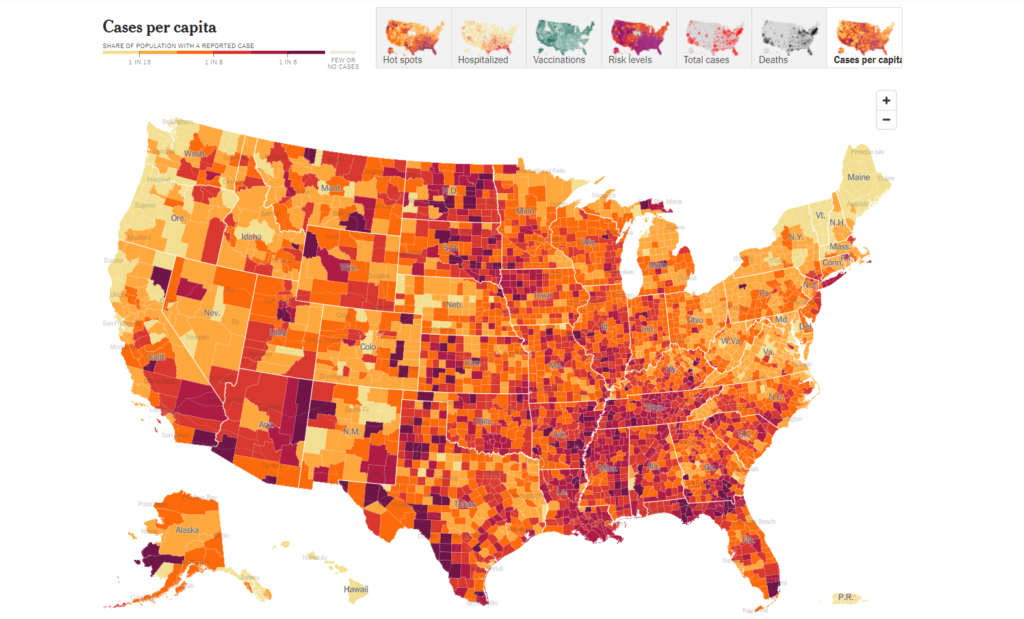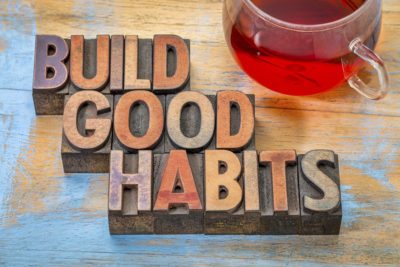It is our third pandemic winter and I am starved for novelty. TGF and I drove downtown to pick up carryout last night and it was the first time in a month I’d left my zip code and the first time in two weeks I’d left the house. Literally.
I work at home now. I realize how lucky that makes me. I have what in the BeforeTimesTM most of us dreamed of: no commute. But in those times we dreamed of no commute based on the idea that we could go out and do other things, like hit that 4 pm movie or join a sports team near our house where games started at 5 pm.
There’s not a lot of going out and doing other things in my life. And the net result of having no commute, in addition to not having to slog to work in the rain and the cold, and not having to deal with subway delays, I am under stimulated, starved for novelty, which is how I found myself watching And Just Like That…, the Sex & The City reboot.
Reviews for the show have been decidedly mixed. The New York Times called the show “…an awkward bid at relevance” while Entertainment Weekly gave it a B- saying “It’s better than the movies, at least” and NPR’s Pop Culture podcast summed up their review with “All we can do is cringe.” Even The Atlantic did a piece focusing specifically on Miranda, how her character had changed, and how those changes made very little sense.
Weird, cringy, overly woke, these are some common themes in the reviews. I knew all that going in and I watched it anyway (see starved for novelty). I’m not sorry I did.
For one, Sex & The City has never been about reality. It presented a vision of 1990s New York that was no more real than the idea that Monica and Rachel could afford that apartment on Friends.
Sex & The City was always about the idealized potential of New York, where culture and glamor were a mere cab ride away, never worrying about what the cab ride cost or if there was going to be someone puking in the gutter when you got out at your destination.
And guess what? It absolutely was weird. The first couple of episodes feinted toward acknowledging the pandemic with:
- Specific dialogue about how great it was to be coming out of the pandemic
- Background characters wearing masks who suddenly basically disappear altogether (though some of this is handled with an awkward opening credits time passing montage)
- How Miranda and Steve were coping with having their son and his girlfriend in their “pod”
- Anthony’s hunks delivering bread business, born during 2020 when everyone was doing sourdough
But the show essentially took the stance of “Hey, let’s just live in a world where we acknowledge the pandemic was a thing but act like it’s totally over and we’ve gone back to ‘normal.'”
Was it cringy? Maybe. My guess is most of that feeling is generated by the internalized misogyny that causes discomfort with talking about the sex lives of 50-something women whom we were more than happy to watch when they were in their 30s.
Overly woke? Perhaps. Woke is such a trigger word. I’d reframe it this way: It wasn’t overly woke so much as working extra hard to surface the third leg of Hollywood’s Minority Trope stool: The Magical Queer.
A Lesson in Character Tropes: The Magical Negro and The Manic Pixie Dream Girl
Hollywood has already given us the first leg of the stool, the Magical Negro, the Black character who Wikipedia says is “typically, but not always, in some way outwardly or inwardly disabled, either by discrimination, disability or social constraint.”
The Magical Negro trope character has no life of their own, and typically very little back story. The character usually works in a job seen as menial – janitor, housekeeper – and exists in the story to help the white lead character achieve their goal, often at great personal sacrifice.
The Magical Negro often has access to spiritual wisdom, through their inherent savagery, that is closed off to the white characters. We see this a lot when this trope is the Magical Native American (or Magical Indian if you prefer)
On a bigger scale, the Magical Negro exists to assuage white guilt, to legitimize continued racism in American society by saying with subtext “See, these people serve a valuable purpose in the position they are in.”
The second leg of the Minority Trope Stool is the Manic Pixie Dream Girl. Like the Magical Negro, the Manic Pixie Dream Girl exists to “help the [male] protagonist achieve happiness without ever seeking any independent goals herself.”
The Manic Pixie Dream Girl (MPDG) isn’t new. TV Tropes maintains she’s been around since the 1200s even though this specific term wasn’t coined until 2007 by film critic Nathan Rabin in response to the movie Elizabethtown and the character played by Kirsten Dunst.
The Manic Pixie Dream Girl is everything the label says: high-energy, in contrast to our brooding hero’s natural malaise, and quirky enough to make your teeth ache like you’ve been on a sugar binge.
Unorthodox, spontaneous, often with hair an unnatural color, and always, always white and petite, the Manic Pixie Dream Girl has a lot of projects going on but nothing she isn’t willing to drop to make the hero realize his own potential. Oh, and take for granted that she is sexually aware and most likely bisexual but in that non-threatening way that straight men prefer.
Some have argued the that Manic Pixie Dream Girl trope is finally done. Nathan Rabin himself has disowned the term. I think she’s just been replaced by the GirlBoss Trope. More on that later. Misogyny runs deep enough that the MPDG still belongs here.
Meet the Magical Queer
That third leg of the stool is something new: the Magical Queer. Until recently, queer character and plot tropes were more about pity and less about how these characters could enable the main characters to live their fullest lives and be their best selves. It was less “thanks for the assist” or “you have served your purpose in society” and more “there but for the grace of God” in feel.
But as queer people have become more accepted by so-called “mainstream” society, some of these character and plot tropes have slowly eroded and a new one has emerged that has much in common with the Magical Negro.
The Magical Queer by benefit of struggles against society’s prejudice is able to see and speak truth that the straight main characters can’t and identify it as what is holding them back. Most often, the Magical Queer is a transgender woman, and typically one who appears gender-conforming.
Part of what made And Just Like That… seem so horribly woke is that it doubled-down on the Magical Queer, first in the form of Che Diaz, a non-binary they/them pronoun using, masculine-presenting, polyamorous bisexual fuckboy who checked so many non-conforming boxes there might as well have been a literal checklist used to build this character.
Che, who is a third of the featured personalities and Carrie’s boss at the podcast where they both work, has a lot going on: active love life, successful podcast, stand-up career. Che, as The Atlantic noted, has zero reason to be interested in stuffy, uptight, traditional, rational Miranda.
And it’s a pity, too, that they stay together for more than a weed and booze fueled grapple in Carrie’s kitchen after which Che tells Miranda to “DM me sometime,” because Che isn’t a character so much as a Magical Queer who finally clarifies for Miranda the middle-aged funk in which she finds herself 20+ years into a marriage and a career.
Che shows Miranda through that Magical Queer vision that the world can be as you shape it to be, especially if you’re a well-off, gender-conforming white woman. Your power is so great, in fact, you can get someone who has no business being in love with you to uncheck one of those boxes that is so dear to them and lean toward a more traditional life.
One thing I will say, whether this is at the behest of Cynthia Nixon, a real life, late-in-life lesbian coming out story, or if it was the show runners trying to tap into some sort of zeitgeist that they see coming, it was gratifying to see two female-bodied people, one of whom was obviously masculine-presenting, in an intimate relationship.
Our other Magical Queer comes in the form of the transgender Rabbi Charlotte and Harry finally hire to officiate their child Rock’s (nee: Rose) “they-mitzvah,” which I really hope isn’t a thing. This woman finally makes Charlotte and Harry understand what the other Rabbis they tried to hire wouldn’t tell them: That their child hadn’t bothered to prepare at all for the ceremony, which seems at best unrealistic to me given how important an event the -mitzvah is in any Jewish child’s life.
Regardless of how it happened, And Just Like That… seems to be at the forefront of a trend that needs to die an early death. If we’re going to see more trans and gender non-conforming characters on TV, let’s skip the trope phase and let them be real people from the start.


 Dear Neighbors,
Dear Neighbors, I started 2021 with six habit tracker programs installed on my phone. Not from any obsessiveness, because I discovered something interesting about myself last year: I’m one of those people who is motivated by continuity.
I started 2021 with six habit tracker programs installed on my phone. Not from any obsessiveness, because I discovered something interesting about myself last year: I’m one of those people who is motivated by continuity.